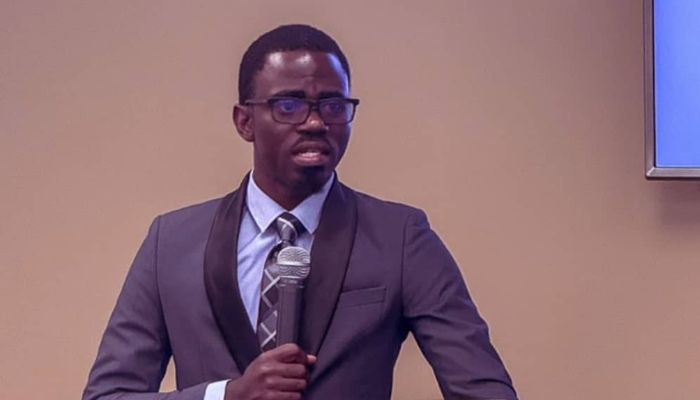Nigerian researcher pioneers predictive safety models to reduce construction site accidents
Abayomi Ayoola Oladejo, a Nigerian scholar and Ph.D. candidate at the University of Colorado Boulder, is charting a new course for construction site safety worldwide through the use of data analytics and predictive modeling.
As a graduate research assistant with the Construction Safety Research Alliance (CSRA), Oladejo’s work is helping the industry move from reactive to proactive safety management.
His passion for construction safety, however, began far from the laboratories and data centers of the United States. It started on the bustling construction sites of Nigeria, where he witnessed first-hand the consequences of inadequate safety measures.
“Witnessing the aftermath of tragic construction accidents that claimed the lives of workers and left others injured ignited within me a passion to dedicate myself to making a positive impact and ensuring such tragedies are mitigated,” Oladejo recalls.
A graduate of Ladoke Akintola University of Technology with a Bachelor of Technology in Civil Engineering, and later a master’s degree holder from the University of Ibadan, Oladejo’s academic and professional journey has been shaped by a deep commitment to saving lives through innovation.
At CSRA, an industry-academic alliance renowned for its collaborative research on construction safety, Oladejo leads pioneering studies on how last-minute changes on construction sites affect workers’ ability to anticipate and manage risks.
Using statistical models and advanced data analytics, his research analyzes vast safety observation datasets to uncover patterns that might otherwise go unnoticed. “My work uses data analytics to make sense of safety observation data, revealing patterns that help us figure out what makes a crew more or less likely to notice and respond to last-minute changes,” he explains. “The goal is to intervene before something goes wrong.”
This data-driven approach addresses one of the most persistent challenges in the construction industry: managing dynamic risks that emerge under high-pressure, rapidly changing conditions. Oladejo collaborates with leading construction, infrastructure, and utility firms, as well as experts in psychology and statistics, ensuring that his findings translate into real-world impact.
To test his hypotheses, Oladejo designs and implements field experiments across various construction sites, introducing tailored safety interventions and tracking improvements in hazard anticipation and risk identification.
“I validate my research through field experiments, observing whether there’s a consistent improvement in safety practices, and I compare real data from before and after interventions to see if there’s a measurable impact in the field,” he said.
While his current work focuses on the United States, Oladejo’s vision extends to developing regions, particularly Africa, where construction remains one of the most hazardous industries. He advocates for low-cost but high-impact measures, such as structured pre-task planning and formalized risk assessments.
“For Africa, especially Nigeria, I hope my research will encourage structured pre-task planning and risk assessment programs, which are low-cost but high-impact solutions that reduce serious injuries and fatalities,” he said.
Oladejo’s groundbreaking contributions have earned him numerous recognitions. In 2025, he received the McLaren Futures Family Fellowship, an award presented to scholars who are shaping the future of construction research. Earlier, in 2018, he was named a Young African Leadership Initiative (YALI) fellow, a testament to his commitment to leadership and social impact.
Beyond his research, Oladejo serves as Chair of the Student Affairs Committee for the Colorado Section of the American Society of Civil Engineers (ASCE), where he mentors upcoming engineers and advocates for stronger integration of safety education in engineering curricula. He is also a registered engineer with COREN (Nigeria), a Project Management Professional (PMP), and a PMI Agile Certified Practitioner (PMI-ACP).
Looking ahead, Oladejo envisions a future where construction safety is predictive, adaptive, and human-centered. “In the next five to ten years, I see more use of real-time data from wearables, sensors, and digital models to help crews spot risks before things go wrong,” he predicts. “The future of safety lies in designing systems that understand how people actually work under pressure.”
Through his blend of technical expertise, leadership, and a mission-driven vision, Abayomi Ayoola Oladejo stands at the forefront of a global movement to make construction safer, proving that data, when guided by empathy and innovation, can save lives.

